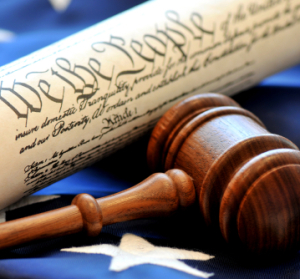 Civil Right Restoration in Florida currently takes decades for the state Board of Executive Clemency to process because they have 4 clemency hearings a year where the Governor and the Cabinet consider requests by fewer than 100 people at a time to restore their right to vote, run for office or own a gun. See Miami Herald, “Thousands of Florida Felons Wait Decades to Regain the Right to Vote,” published July 13, 2017, by Steve Bousquet. There are more than 20,000 clemency applications pending at the moment. This has been a long-standing issue in the State of Florida and there are numerous options being considered. One of these options is House Bill 903.
Civil Right Restoration in Florida currently takes decades for the state Board of Executive Clemency to process because they have 4 clemency hearings a year where the Governor and the Cabinet consider requests by fewer than 100 people at a time to restore their right to vote, run for office or own a gun. See Miami Herald, “Thousands of Florida Felons Wait Decades to Regain the Right to Vote,” published July 13, 2017, by Steve Bousquet. There are more than 20,000 clemency applications pending at the moment. This has been a long-standing issue in the State of Florida and there are numerous options being considered. One of these options is House Bill 903.
Rep. Cord Byrd, of Jacksonville Beach, has introduced House Bill 903, entitled the Economic Redemption and Restoration of Constitutional Rights Act. If passed, this law would authorize certain convicted felons to petition for constitutional or civil rights to be restored in the circuit court of the county in which the felon resides or in the county where the felon was convicted. The petition must contain the following:
- Documentation showing the conviction, the sentence imposed and served, and any release granted or other disposition of each case
- Facts showing the petitioner is a fit subject for relief; at a minimum, that they have completed all court imposed sanctions.
In HB 903, the state attorney would be served with the petition and may object to and present evidence and call witnesses relevant to the relief sought in the petition. The court would enter an order granting the petition if the court finds that the petitioner has led a law-abiding life since discharge or release and appears likely to do so; the petitioner is not likely to act in a manner that is dangerous to public safety; and granting the relief is not contrary to the public interest. Under the proposed law, if the court denies the petition, the petitioner may not try again until 1 year after the date of the final order. It also provides for an opportunity to appeal. If passed, it will take effect July 1, 2018.
There is also currently an effort to get a constitutional amendment on the ballot 2018 by the group, Floridians for a Fair Democracy, called the Voting Restoration Amendment. The amendment would automatically restore voting rights only to certain felons upon completion of all terms of sentence including parole or probation. It would not apply to those convicted of murder or sexual offenses.
In addition, a class-action lawsuit is pending against Gov. Rick Scott, the Clemency Board, and six other state officials, including the Secretary of State and the Department of Corrections Head. The Fair Elections Legal Network filed the lawsuit on behalf of nine former felons. The lawsuit alleges violations of the 1st and 14th Amendments of the U.S. Constitution. It cites the incredibly long length of time it takes for civil rights to be restored.
Currently, the civil right restoration process cannot even begin until 5-7 years after the last felony conviction. For assistance with the process of civil right restoration, you need an experienced Jacksonville criminal lawyer to help navigate the law. Call the Law Office of David M. Goldman, PLLC, for information and a consultation.
 Jacksonville Criminal Defense Lawyer Blog
Jacksonville Criminal Defense Lawyer Blog

